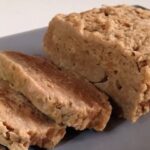The belief that a lot of calcium leads to healthy bones and protects against fractures in old age is widespread. It is not for nothing that most people eat so many dairy products. They are convinced that they are doing something particularly good for themselves and their bones with all the calcium. Calcium is also really an important mineral. However, anyone who consumes calcium in addition to the normal requirement – be it via calcium-rich foods or dietary supplements – cannot do their bones any favors and also does not protect themselves from fractures.
More calcium doesn’t help the bones
Older people in particular are repeatedly recommended to consume a lot of calcium in order to reduce the increased risk of fractures in old age. However, two studies published in the British Medical Journal BMJ in autumn of 2015 have now shown that increased calcium intake is not suitable for promoting bone health or even preventing bone fractures.
Therefore, therapists should no longer advise their patients to consume more calcium to prevent fractures.
The researchers involved believe that previous recommendations to increase calcium intake above normal requirements to strengthen bones should be urgently reconsidered.
More calcium from milk or tablets is unnecessary
Standard guidelines suggest a calcium intake of at least 1000 to 1200 mg per day for older women and men. This is said to improve bone density and prevent fractures. As a result, many people eat copious amounts of dairy products or take calcium supplements to achieve recommended calcium levels.
Often, however, they then take in much more calcium than they need and quickly end up with an overdose. Dairy products such as cheese in particular provide a lot of calcium, even in small quantities, so you can quickly consume too much calcium with a diet rich in dairy products alone, which has not yet been recognized as a problem in conventional medicine.
Since some earlier studies had shown that a high calcium intake via isolated calcium preparations (calcium effervescent tablets, etc.) could put a strain on the cardiovascular system and also increase the risk of developing kidney stones, again and again, the recommendation was initially even passed better cover the calcium supply with a calcium-rich diet, i.e. eat lots of dairy products.
But now it has been recognized that even a diet that is excessively rich in calcium (many dairy products) does not have any positive effects worth mentioning in terms of bone health.
More calcium does not protect against bone fractures
A team of researchers from New Zealand investigated the matter by analyzing all randomized controlled trials and observational studies of people over 50 who increased their calcium intake in any way, whether through diet or supplements.
In their first study, they found that increasing calcium consumption resulted in only a minimal 1-2 percent improvement in bone density, which was not enough to reduce the risk of fractures.
This was confirmed in the second study. There it was clearly shown that an increased calcium intake had no effect at all on the risk of fractures, i.e. one cannot protect one’s bones from fractures with a calcium-rich diet.
What really protects your bones
Commenting on the New Zealand studies, Professor Karl Michaëlsson of Uppsala University in Sweden said that many people would fear side effects from mass calcium supplementation, but could not expect any benefits.
Our readers, on the other hand, have long been informed and know that great bone health requires completely different measures than excessive calcium intake from dairy products or calcium tablets.
Because calcium alone is of no use to the bones if other vital substances and prerequisites are missing that would transport the calcium to the bones in the first place. Also, bones not only need calcium.



